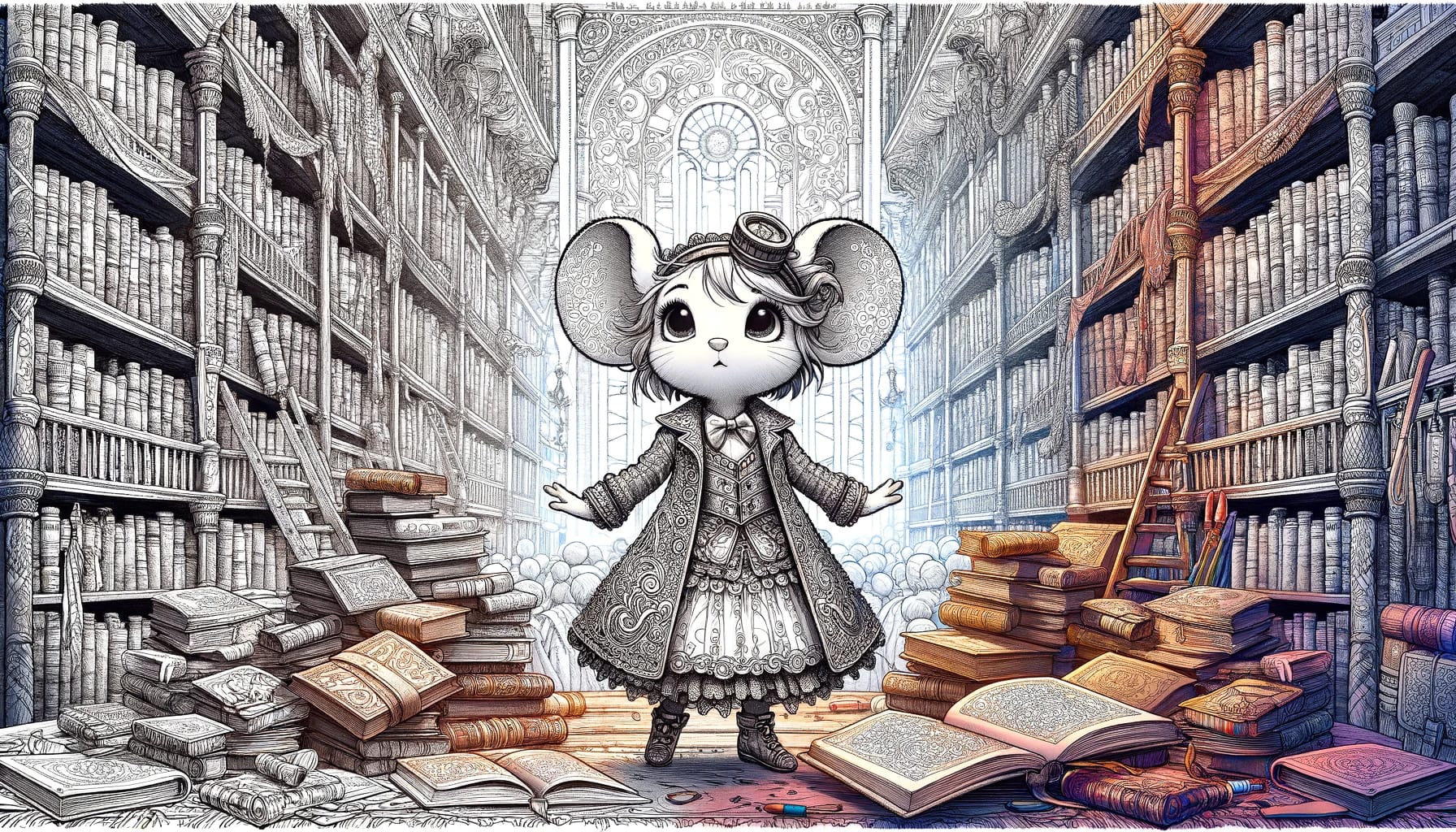Chapter III: Sophie Finds the Library

It wasn’t long after Einstein used the Smartening Ray™ on Sophie and her brothers that she started finding herself insatiably, constantly hungry. But she wasn’t hungry for cheese or other sorts of foods that mice normally snack on. No, here she was hungry to know more.
Sophie started to work her way through reading anything she could get her hands on. Books laying around. Discarded notes on scraps of paper. It didn’t matter. Sophie was now a Mouse of the World and a mouse who has just learned to read is always hungry to know more about the world around them. She figured out right away that just like matter is simply hyper-concentrated energy, so too books are hyper-concentrated learning. Rather than learn super-slowly running the mazes and taking the problem solving tests that the scientists were devising for them, she could learn super-quickly by tapping into books and drinking knowledge straight from the source.
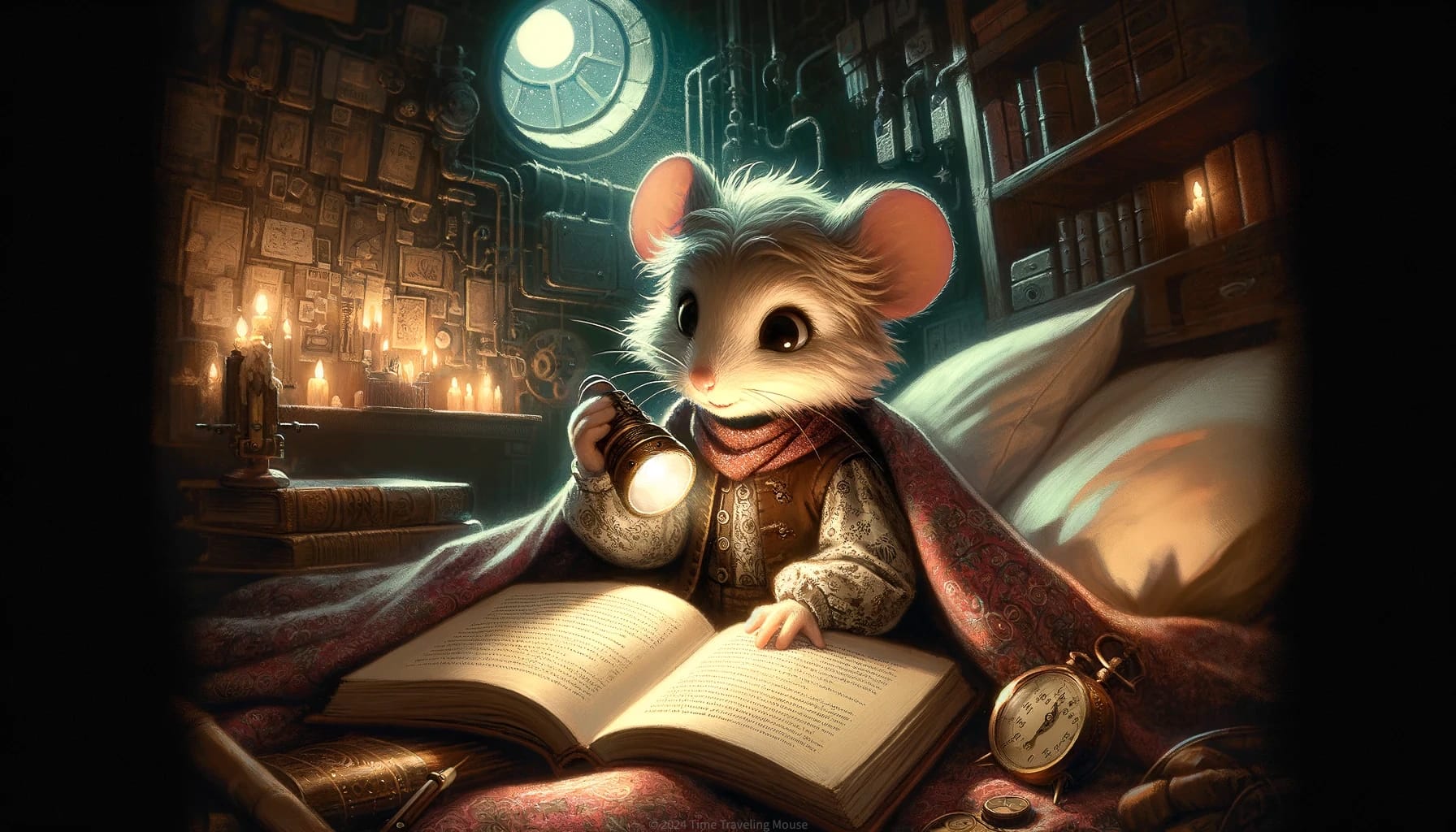
So while her brothers used their free time to play mouse games, Sophie would go off by herself to read. And when the day was done, Sophie would take a little flashlight to bed with her and continue reading under the covers. She’d keep reading far into the wee hours of the night after everyone else in the lab had fallen asleep. That’s simply what mice who have just learned to read do.
Not everyone knew that. After a week or two of sleepless reading-filled-nights, Heisenberg was convinced Sophie was on drugs.
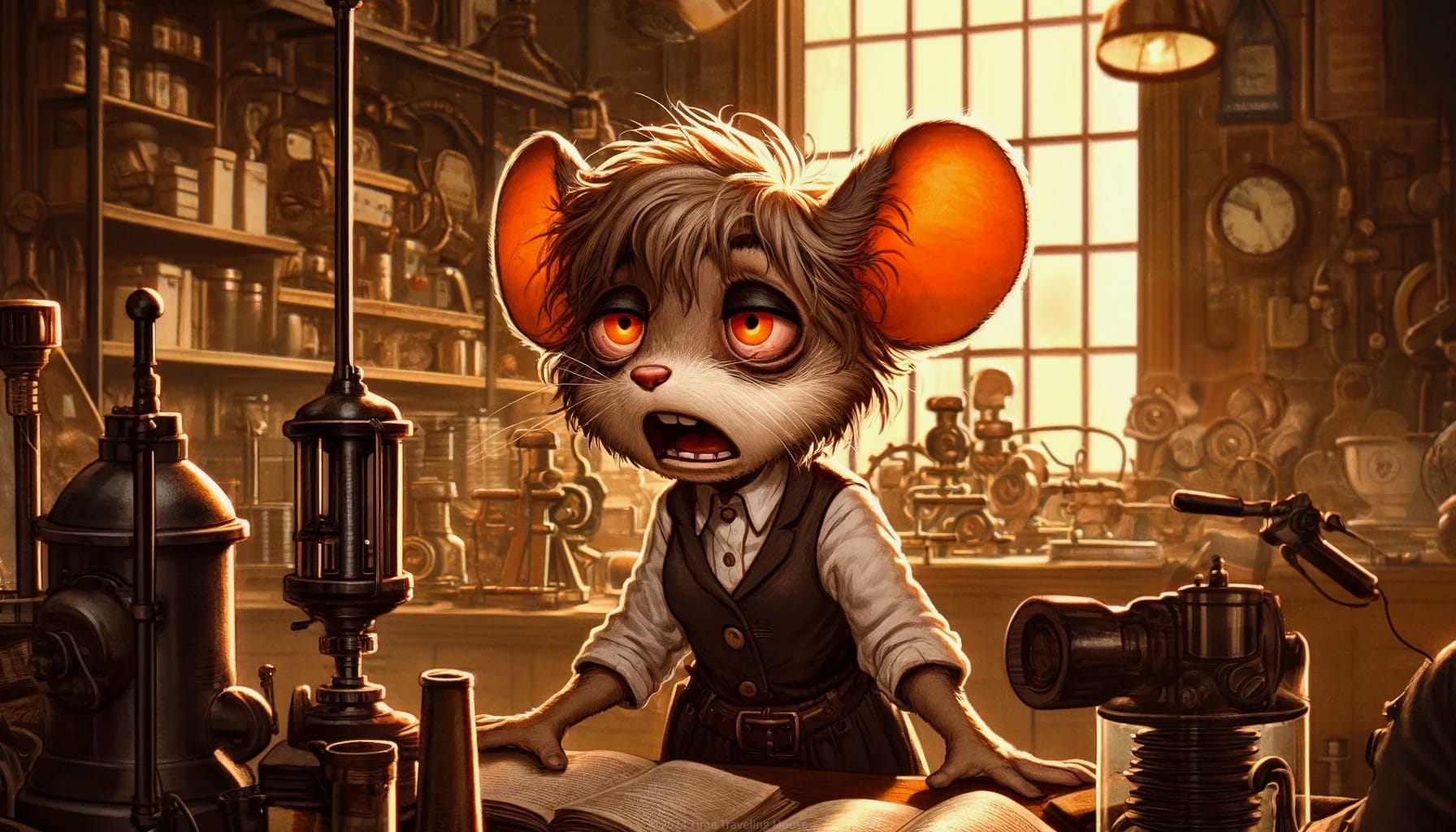
Each morning coming into the main lab, she was so red-eyed and stumbly and she could hardly keep her eyes open during that day’s experiments: Heisenberg was worried she would be a bad role model for her mouse brothers and talked about sending her away to a special program for young rebellious mice who are on drugs.
Schrödinger, who was better at paying close attention to little details, pointed out to his scientist friends that her vocabulary had gone through the roof but she was mispronouncing some really common words — exactly the sort of mistakes that young readers who devour books will make. Once the scientists figured out that she was reading on the sly at the expense of her sleep, they all decided to send her away to a special program all right, but one where she could learn one-on-one from Einstein, Bohr, Heisenberg and the others. And they included plenty of free time to read into each day, too. Most importantly, Einstein gave Sophie her first library card.
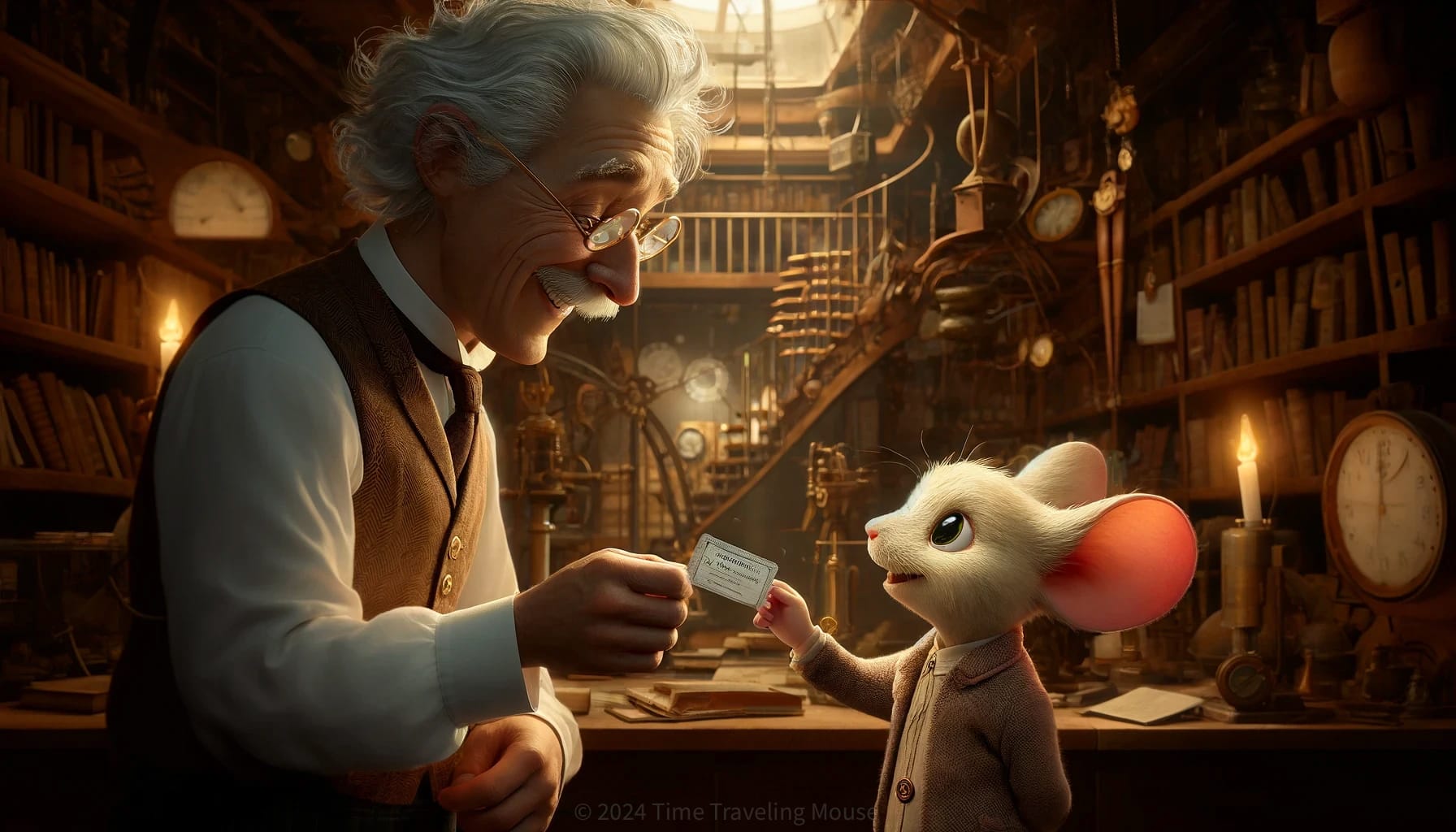
Once she made her way to the library, she couldn’t believe her little mouse eyes. Row after row of books on what seemed like every topic, all neatly stacked on shelves. Young Sophie had never imagined there were so many books to be found in the whole world and now? Here they all were together in one place. Just aching to be read.
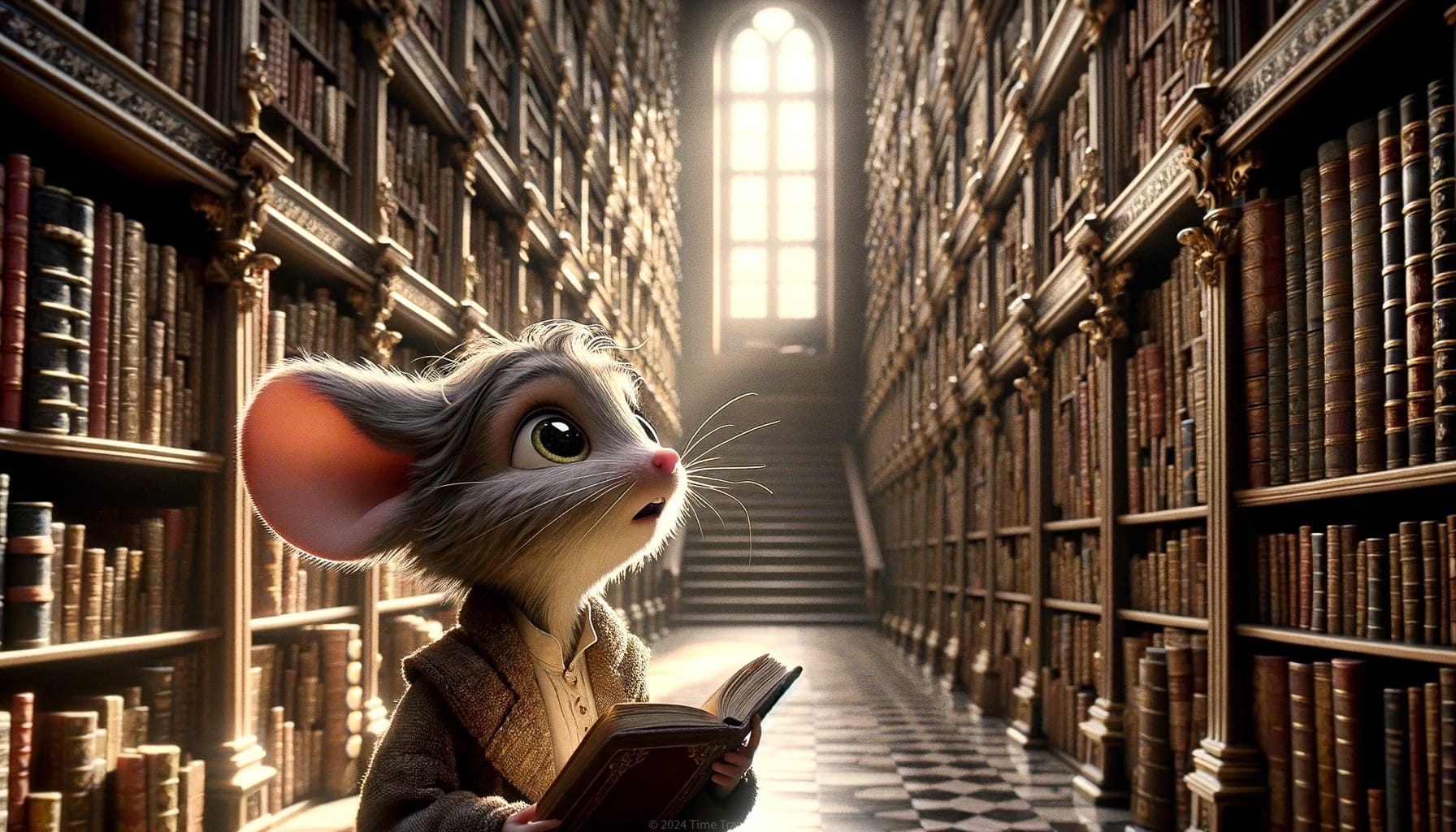
She didn’t know where to begin. The idea of choosing what to read next was totally new to her. Before, she had been content to steal away scraps she picked up around the lab. Discarded notes about experiments. Physics journals. Take out menus. Whatever she could get her hands on. Now, she could choose. You might think getting to finally choose would be easy. Sophie found it really hard.
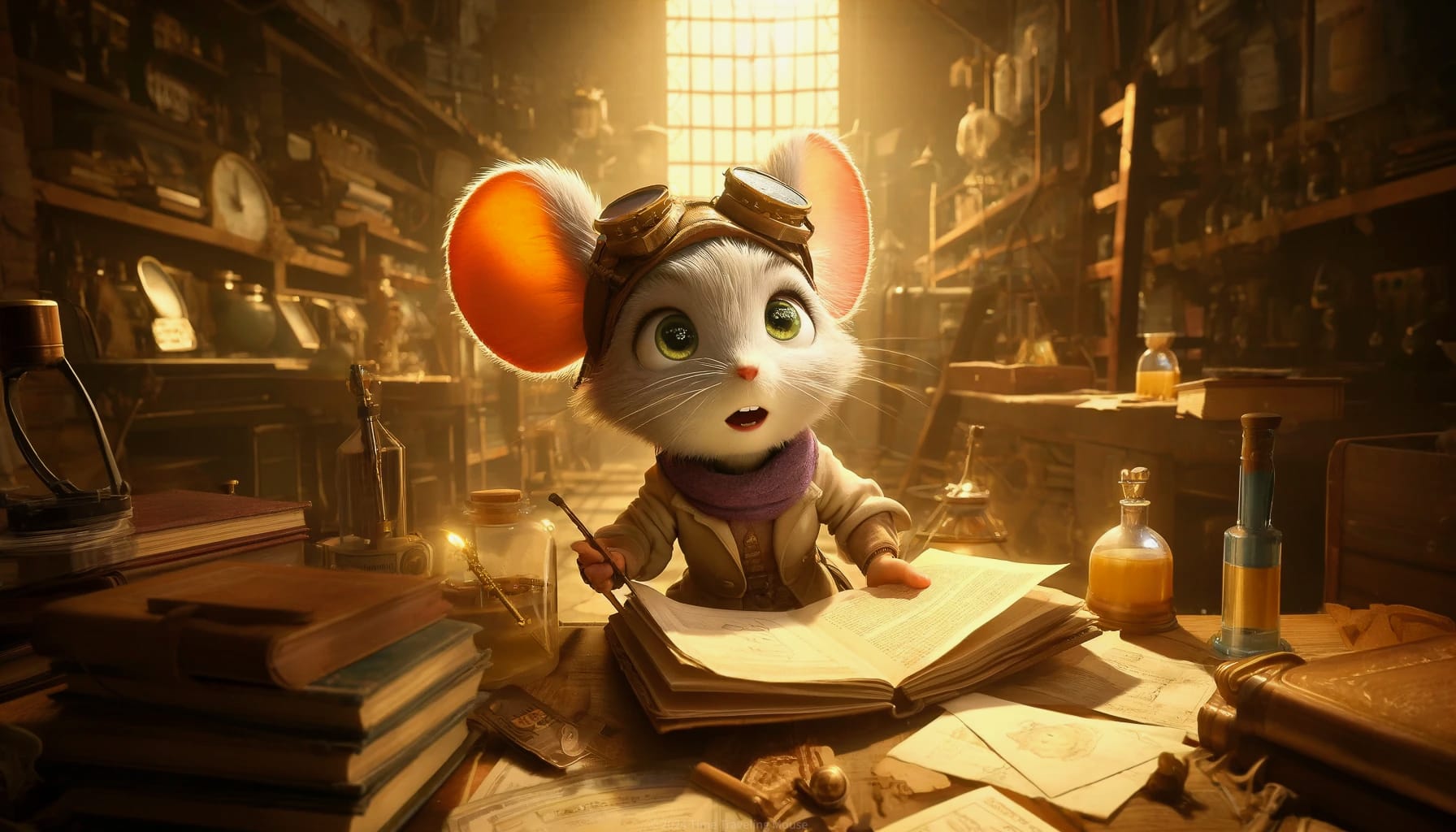
She finally decided that the first book should be a history book. She’d overhead Einstein, Heisenberg and Bohr talking the other day about a book starring a man named Newton. So she thought that might be a great place to start. She wasn’t exactly sure what the difference was between history and biography. (Were biographies just a really specific kind of history? If that was the case, was astronomy a really specific kind of history too?)
Being a mouse who has just learned to read can be very confusing. She furrowed her little mouse forehead as she considered how unfair this was. And she found her thoughts wandering to wondering whether that is always how things are when you first learn them? Until you have enough context to know where to hang the things you are learning, you end up needing to juggle them all in your head at the same time. Super hard to do, even for a super-intelligent mouse that has recently been hit with a Smartening Ray.
Put simply: How was she supposed to know what she didn’t know? (This exact question she posed to put a teacher in her place a few weeks later. It was only fair. The teacher was unsuccessfully trying to make her look foolish in front of the whole classroom. Why? Because the star pupil Sophie didn’t know something. More specifically, because the teacher had failed to teach something and was somehow trying to make that into Sophie’s fault. Being a super-intelligent mouse, she understood the motivation behind this dressing down had everything to do with how insecure her teacher was. It was the right thing to say in the moment and though she got detention for saying it, the lesson was one she would remember for the rest of her life. The scientist friends found this whole episode very amusing when they talked about it over their nightly cigars.)
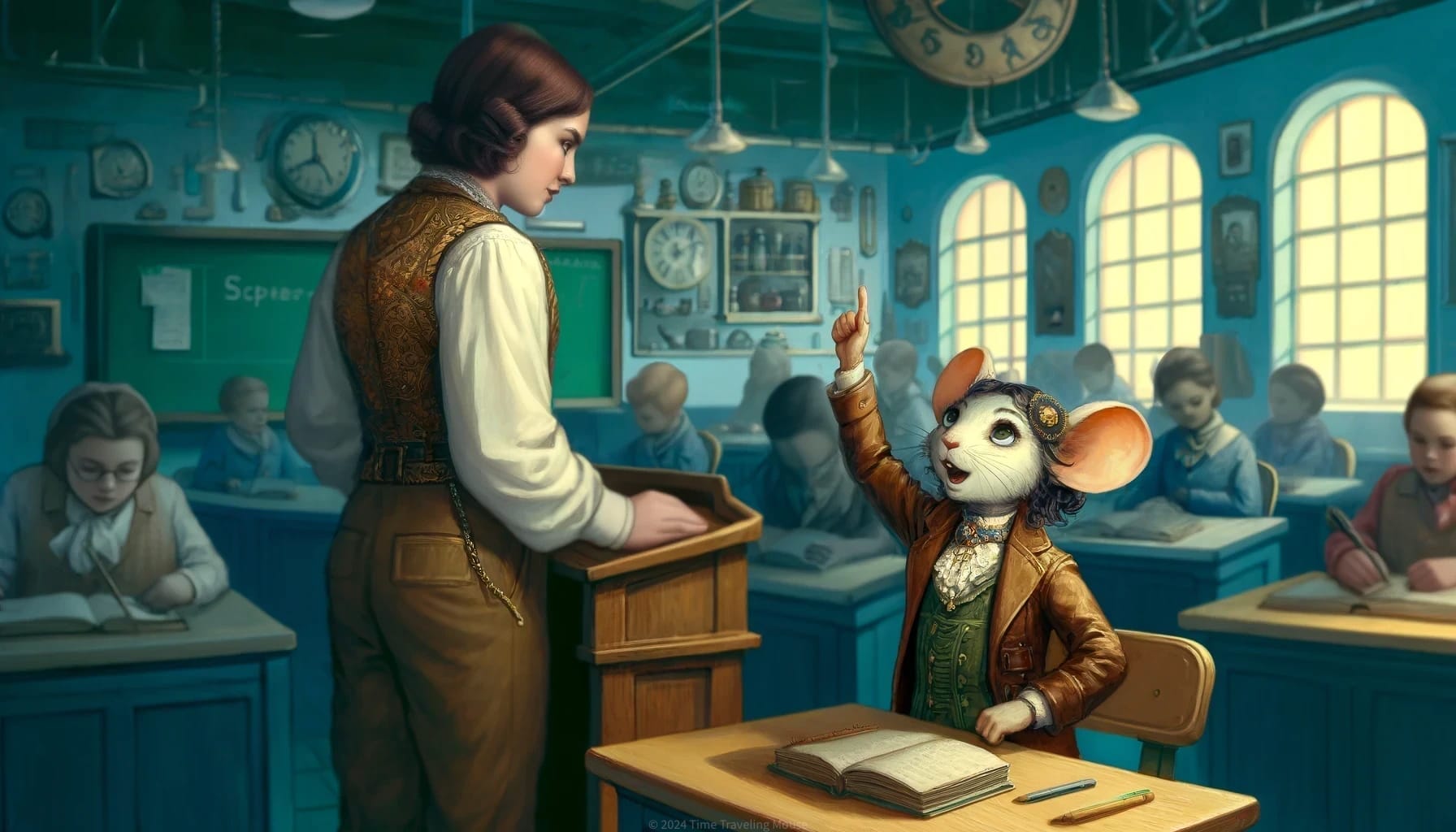
But back to the present moment (which is obviously in the past) (this will happen a lot in this story!) Sophie was still wondering how she would track down the book she was looking for. Clearly it was somewhere in the library. How else would the scientist friends have all read the same book so they could talk about it with one another in such short order? The question was: How do you find one specific book among the thousands and thousands and thousands of books?
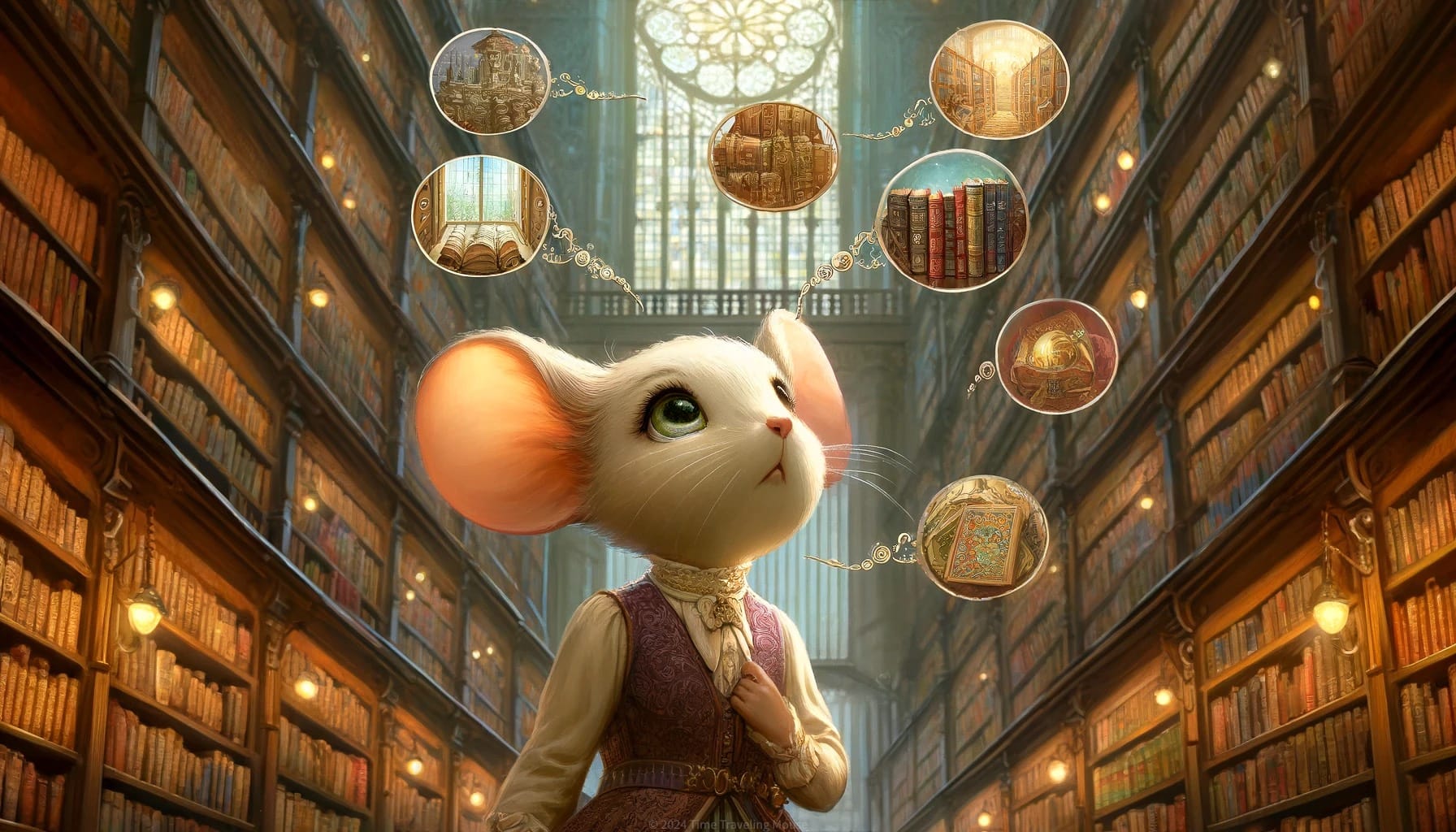
She had a couple of idea about how the books might be organized. Having recently taught herself to read she had also recently learned the alphabet and wondered whether the books might be organized alphabetically. The more she considered this, the more foolish that method of arranging books seemed. First off, you’d need to know the exact title of the book you were looking for. And also, any time a new book was added to the library, it would involve a ton of shifting other books out of the way to make room. Though the more she thought about it, the more she knew that that would be a problem that almost any filing system would run into.
She wondered whether the organizational system might be by color. But again, this would only make sense if you knew the color of the book you were looking for ahead of time. Besides, a quick scan of the shelves showed her that this was clearly not how this library was arranged.
Another thought that came to mind was that maybe the newest books that come into the library were put up front -- but again this wouldn’t make sense unless you knew the exact time that the book you were looking for arrived at the library. Also -- and this was a really strange problem to think about, but there would be no easy way to add new books to shelves without having to move ALL the books in the whole library to make room for them. The new books would shift the old books out of the way. And the old books would shift older books -- and so on and so on. Eventually any little holes that you left in the shelves would get filled up. This would be a total disaster to maintain over time.
